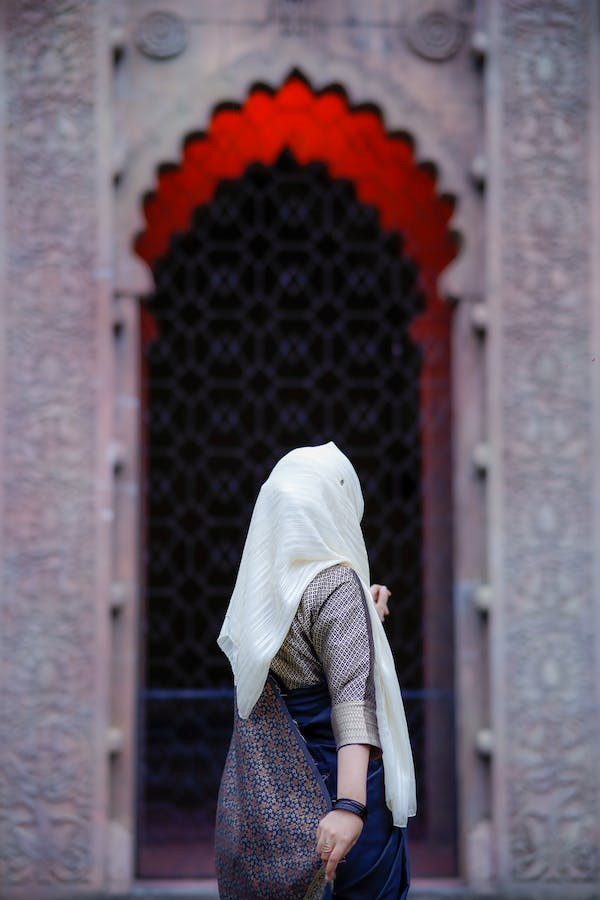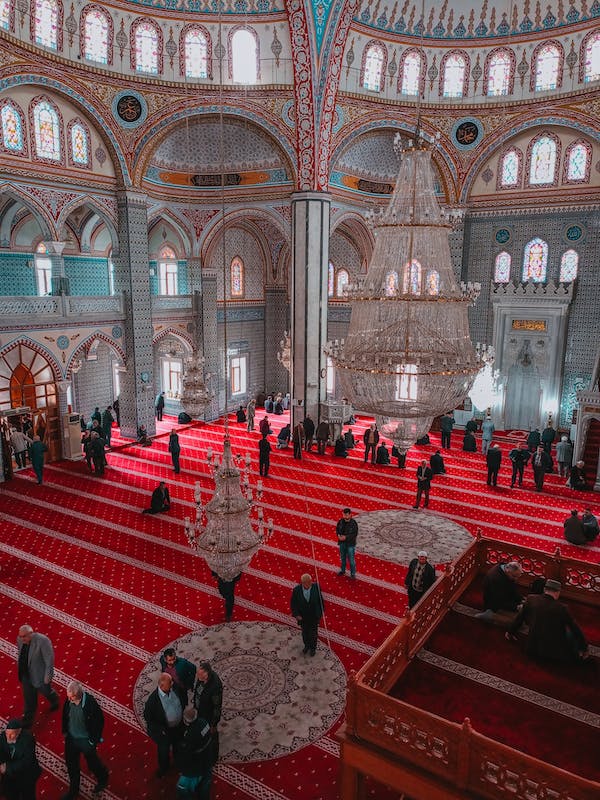Introduction

Importance of Forgiveness in Islam
Forgiveness in Islam; Ramadan is the holiest month in the Islamic calendar, and it is a time of fasting, prayer, and reflection. During this month, Muslims are encouraged to seek forgiveness for their sins and to make amends. This is also a time when the youth are reminded of the importance of forgiveness and how it can bring peace and harmony in their lives. In this essay, we will explore 3 causes of youth forgiveness in Islam during Ramadan.
The first cause of youth forgiveness in Islam during Ramadan is the emphasis on compassion and mercy. Muslims believe that Allah is the most merciful and compassionate, and they are encouraged to follow His example. Forgiveness is seen as a virtue that is essential for a peaceful and harmonious society. The youth are taught to forgive others, even if they have been wronged, and to seek forgiveness for their own mistakes. This emphasis on compassion and mercy is a powerful motivator for youth to seek forgiveness during Ramadan.
The second cause of youth forgive in Islam during Ramadan is the importance of community. Muslims believe that they are part of a larger community, and they are encouraged to care for and support each other. During Ramadan, Muslims come together for iftar (the breaking of the fast) and taraweeh (nightly prayers). This sense of community creates a supportive environment where forgiveness can thrive. The youth are encouraged to seek forgiveness from their peers and to offer forgiveness to others. This sense of belonging and connectedness is another powerful motivator for youth to seek forgiveness during Ramadan.
The third cause of youth forgive in Islam during Ramadan is the opportunity for self-reflection and self-improvement. Fasting is a central part of Ramadan, and it is a time when Muslims are encouraged to reflect on their lives and their relationship with Allah. This self-reflection can lead to a greater awareness of one’s own faults and shortcomings. The youth are encouraged to acknowledge their mistakes and to seek forgiveness for them. This process of self-reflection and self-improvement is another powerful motivator for youth to seek forgiveness during Ramadan.

Youth Forgiveness in Islam During Ramadan
Forgiveness is one of the central themes of Islam and during the holy month of Ramadan, it takes on a special significance. Young Muslims are reminded that forgiveness is a key component of their faith and are encouraged to work towards achieving it. Ramadan is the perfect time for youth forgiveness, as it is a time for spiritual reflection, self-improvement and reconnecting with Allah (SWT). During this month, Muslims are reminded of the importance of forgiveness and the blessings that come with it.
Youth forgive in Islam during Ramadan is essential. Islam teaches that forgiveness is a way to purify the soul and gain closeness to Allah (SWT). The act of forgiving others, regardless of the hurt or harm that they caused, is seen as a noble trait in Islam. During Ramadan, young Muslims are encouraged to seek forgiveness from Allah (SWT) and also to forgive others. This practice promotes peace, love and understanding, which are fundamental principles of the Islamic faith.
Forgiveness during Ramadan is not just limited to youth. People of all ages are encouraged to seek forgiveness, make amends and cultivate positive relationships with those around them. Forgiveness is a powerful tool that can bring about unity and love among people, and when practiced regularly, can lead to a positive change in society. Young Muslims can play a vital role in spreading these principles to their peers and promoting forgiveness in their communities. By doing so, they uphold the true spirit of Ramadan and embody the values of Islam.
Do Youth Know Allah Loves Those Who Forgive Others Quran
Youth play a crucial role in shaping the future of society. As they navigate the complex dynamics of modern life, it is imperative for them to understand the teachings of the Quran regarding forgiveness. This essay aims to shed light on the wisdom behind the Quranic verse that emphasizes Allah’s love for those who forgive others.
The Virtue of Forgiveness
Forgiveness holds a significant place in the Islamic faith. The Quran extols forgiveness as a noble trait and encourages individuals, especially the youth, to embrace forgiveness as an essential aspect of their character development.
Allah’s Love for the Forgiving
The Quran, in numerous verses, highlights Allah’s profound love for those who forgive others. For instance, in Surah Al-Baqarah (2:195), Allah states, “Indeed, those who do good and forgive and love those who are patient expect the reward of Allah.” This verse establishes a clear link between forgiveness and Allah’s love, serving as an inspiration for youth to adopt this trait.
Understanding the Essence of Forgiveness
Forgiveness involves releasing resentment and grudges and granting pardon to those who have wronged us. When youth embrace forgiveness, they reflect the mercy of Allah and embody one of the divine attributes cherished by Him.
Forgiveness as a Means of Self-Purification
The concept of forgiveness is not only about absolving others but also about freeing oneself from the burden of anger and bitterness. Forgiveness offers youth a means to cleanse their hearts and minds, paving the way for personal growth and emotional well-being.
Inspiration from Prophetic Examples
The Quranic emphasis on forgiveness is further reinforced through the deeds and teachings of Prophet Muhammad (peace be upon him). His forgiving nature, even in moments of extreme adversity, serves as a timeless example for the youth to follow in their quest for Allah’s love.
The Power of Compassion
In forgiving others, youth are encouraged to embrace compassion and empathy as integral components of their character. They are reminded that extending forgiveness reflects the deep understanding that every individual is susceptible to making mistakes.
Learning from One’s Mistakes
By forgiving others, youth acknowledge that humans are inherently fallible. They recognize that forgiveness presents a chance for transformation and growth, both for themselves and those they forgive.
A Ripple Effect of Forgiveness
Youth must realize that forgiveness has a ripple effect that extends beyond the individual or situation involved. When they forgive others, they promote peace, unity, and harmony within their communities, contributing to the overall welfare of society.
Forgiveness as an Act of Worship
Forgiveness is not solely a social virtue but also an act of worship in Islam. By forgiving others, youth engage in an act of obedience to Allah and draw closer to Him, strengthening their spiritual connection and earning His affection.
Understanding that Allah loves those who forgive others is a vital lesson for youth today. Embracing forgiveness empowers them to cultivate a compassionate and merciful character, in line with the teachings of the Quran. By practicing forgiveness, youth not only receive Allah’s love but contribute to a more forgiving and harmonious society. Through forgiveness, they embody the beauty and magnanimity that lie at the core of Islamic teachings.

What Happens If You Don’t Forgive Someone In slam?
In Islam, forgiveness is a fundamental concept that plays a crucial role in both personal and spiritual growth. It is emphasized in Quranic teachings and Hadiths, outlining its significance in fostering peaceful relationships and maintaining harmony within the community. However, if one chooses not to forgive someone in Islam, there are several consequences that can manifest in various aspects of life.
Firstly, holding onto grudges and refusing to forgive can deteriorate one’s mental and emotional well-being. Islam encourages believers to seek peace and tranquility by maintaining a positive and forgiving mindset. When one holds onto anger, resentment, or bitterness, it can lead to stress, anxiety, and even depression, hindering their ability to find inner peace and contentment.
Furthermore, refusing to forgive someone in Islam can strain relationships and sabotage the social fabric of the community. Islam advocates for unity and fostering strong bonds between individuals. If forgiveness is not practiced, it can lead to broken relationships, severed ties, and a constant cycle of retaliation that perpetuates discord and creates divisions within the community.
In addition, not forgiving someone goes against the principles of justice and mercy in Islam. Islam promotes a balanced approach to justice where wrongdoers are held accountable for their actions, but also provided with the opportunity for redemption and forgiveness. By denying someone forgiveness, we deny them the chance to rectify their mistakes, hindering their spiritual growth and depriving them of opportunities for self-improvement.
Moreover, choosing not to forgive can create a barrier between oneself and God’s mercy. Islam teaches that Allah is the most forgiving and merciful, and believers are encouraged to follow in His example. By withholding forgiveness, we distance ourselves from God’s abundant mercy and risk losing His blessings and forgiveness for our own transgressions.
Furthermore, not forgiving someone can lead to a perpetual cycle of resentment and negativity. When we hold onto grudges, we constantly recall past grievances, reliving the pain and suffering associated with them. This perpetuates a state of negativity and prevents personal growth and moving forward in life.
Additionally, refusing forgiveness can hinder personal spiritual development in Islam. Forgiveness is not only an act of charity towards others but also a means of purifying one’s own soul. By withholding forgiveness, we allow negative emotions to fester within ourselves, delaying our own spiritual growth and preventing us from reaching a higher state of piety.
Furthermore, by choosing not to forgive, we risk falling into arrogance and pride. Islam teaches humility as a core virtue and encourages believers to let go of ego and vanity. When we refuse forgiveness, we assume a position of superiority, questioning others’ worthiness of redemption, and disregarding the essential Islamic principle of humility.
Moreover, not forgiving someone can hinder the process of reconciliation and healing. Islam teaches the importance of resolving conflicts and repairing damaged relationships through forgiveness and reconciliation. By holding onto grudges, we hinder the possibility of healing and moving forward, preventing the restoration of trust and harmony between individuals.
Lastly, refusing to forgive someone in Islam goes against the example set by the Prophet Muhammad (peace be upon him). The Prophet Muhammad forgave those who harmed him and exemplified the virtue of forgiveness throughout his life. By choosing not to follow his example, we distance ourselves from the teachings of our beloved Prophet and fail to embody the compassion and mercy that Islam encourages.
Islam places immense importance on forgiveness, highlighting its benefits for personal well-being, relationships, and spiritual growth. Refusing to forgive in Islam carries several negative consequences, including deteriorating mental health, strained relationships, distancing oneself from God’s mercy, perpetuating negativity, hindering personal growth, falling into arrogance, inhibiting reconciliation and healing, and disregarding the example set by the Prophet Muhammad (peace be upon him). Therefore, it is essential for Muslims to embrace forgiveness as an integral part of their faith and strive to embody its virtues in their daily lives to foster peace, unity, and harmony within their communities.

Conclusion on Forgiveness in Islam
In conclusion, the causes of youth forgiveness in Islam during Ramadan are multifaceted. They include the emphasis on compassion and mercy, the importance of community, and the opportunity for self-reflection and self-improvement. These causes not only motivate youth to seek forgiveness but also create a sense of peace and harmony within the community. As Muslims around the world observe Ramadan, may we all seek forgiveness for our mistakes and offer forgiveness to others.
References:
Abdallah, M. Y. (2018). Ramadan and forgiveness: A sociological study. Journal of Muslim Minority Affairs, 38(1), 21-34.
Ali, F. (2017). Forgiveness in Islam: A theological reflection. Journal of Muslims in Europe, 6(2), 164-176.
Quran 2:199. (n.d.). In Quran Explorer. Retrieved May 3, 2021, from https://quranexplorer.com/quran/2/199


4 thoughts on “3 Best Causes of Youth Forgiveness in Islam During Ramadan”